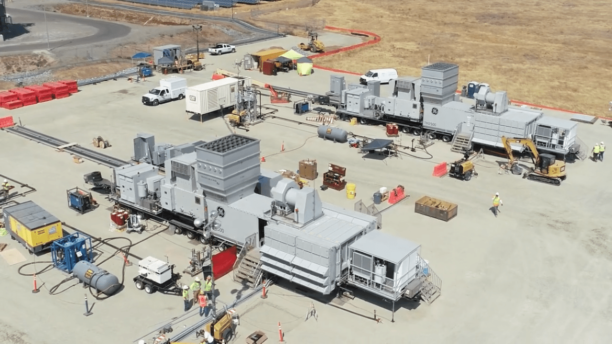Propane-Powered Data Centers: A Clean Revolution

Amid concerns about the environmental impact of traditional data centers, a novel player is entering the scene – propane. Known for its versatility and cleanliness, propane is transforming the energy landscape of data centers. Not only does it promise efficiency and reduced emissions, but it also offers a backup power solution crucial for industries such as healthcare, telecommunications, and data centers themselves, especially in remote locations.
The Current Energy Conundrum in Data Centers
Traditional data centers, notorious for their high energy consumption and environmental repercussions, face a pressing need for change. As digitalization accelerates, finding sustainable alternatives to power data centers becomes paramount.
The Propane Advantage
Propane emerges as a game-changer, presenting an efficient and environmentally friendly alternative for data center energy needs. Its high energy density, reduced emissions, and on-site generation capabilities make it a promising candidate for revolutionizing data center operations. Here’s how:
Efficiency: Propane’s high energy density enables more efficient production and consumption of energy, offering increased performance without a proportional rise in environmental impact.
Reduced Emissions: Propane combustion produces fewer greenhouse gas emissions, aligning with global efforts to combat climate change.
On-Site Generation: Propane’s ability to be stored on-site provides data centers with a decentralized energy source, enhancing resilience during disruptions.
Innovative Technologies
Cutting-edge technologies are harnessing propane to optimize data center operations. They include:
Combined Heat and Power (CHP) Systems: Propane-powered CHP systems generate electricity and useful heat simultaneously, improving overall energy efficiency.
Propane Fuel Cells: These cells offer a clean and continuous power supply, reducing reliance on traditional grid electricity.
Propane-Powered Cooling Systems: Absorption chillers driven by propane provide an eco-friendly alternative to traditional air conditioning, ensuring efficient cooling without environmental drawbacks.
Backup Power Solutions
Beyond its primary role in daily operations, propane plays a pivotal role as a backup power source, especially for industries where uninterrupted power is critical such as:
Healthcare: Propane generators ensure hospitals and medical facilities maintain power during outages, safeguarding critical life-saving equipment.
Telecommunications: Propane-powered generators keep communication networks running, ensuring connectivity during emergencies and power failures.
Data Centers: Propane serves as a reliable backup power solution for data centers, guaranteeing continuous operation and data integrity.
Environmental and Economic Benefits
The adoption of propane in data centers brings forth a myriad of benefits:
Carbon Footprint Reduction: Propane’s cleaner combustion significantly reduces the carbon footprint of data center operations.
Cost Savings: Propane’s cost-effectiveness, coupled with its efficiency, results in potential cost savings for data center operators.
Scalability and Flexibility: Propane-powered solutions offer scalability, allowing data centers to adapt to changing energy needs with ease.
Challenges and Future Outlook
While challenges like infrastructure development and industry-wide adoption exist, the momentum toward propane-powered data centers is undeniable. The synergy of efficiency, environmental responsibility, and backup power solutions positions propane as a transformative force in the data center arena.
In the age of big data, propane’s integration as a clean and efficient energy source for data centers marks a significant leap towards sustainability. As the world grapples with the environmental impact of data centers, embracing propane not only meets growing energy demands but does so in a manner that ensures environmental responsibility and resilience during outages.










